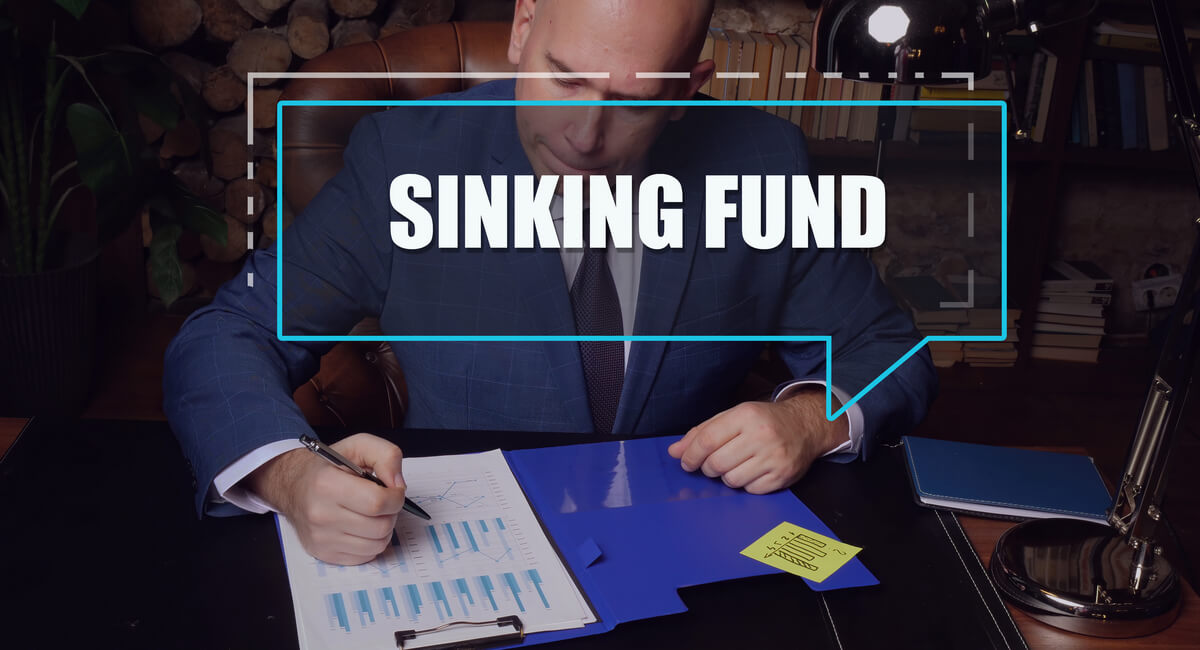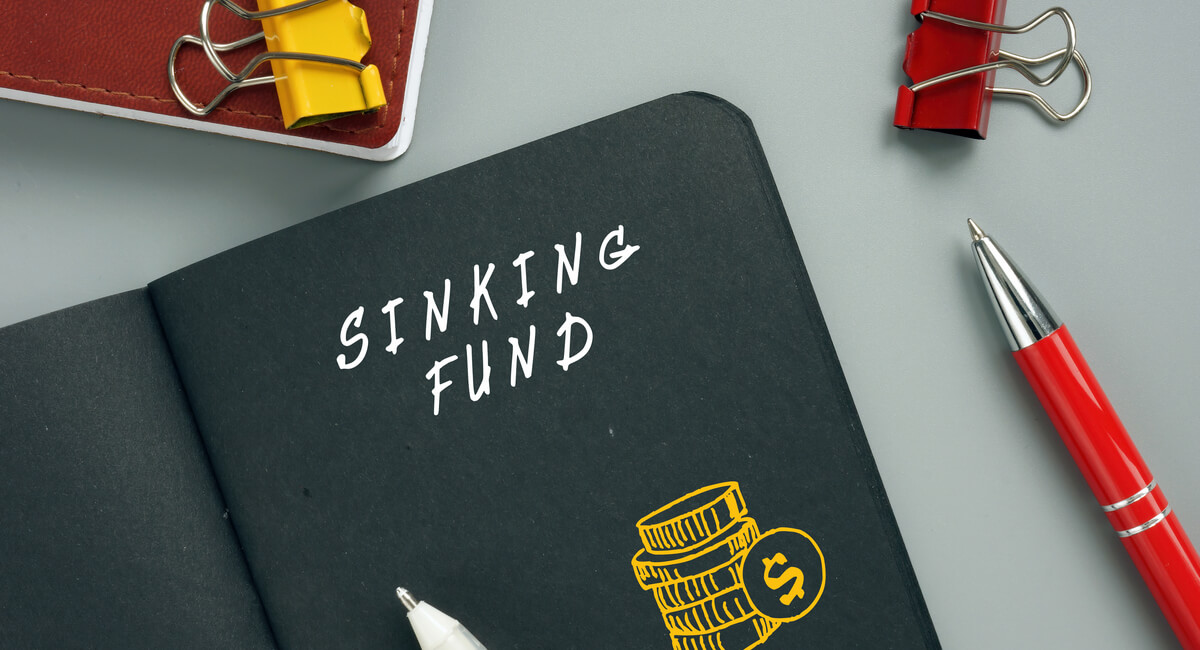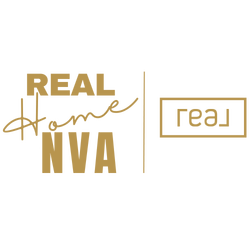Budgeting is at the foundation of your financial success, but it can feel difficult to keep an organized budget when large expenses come up. You might have plenty of extra money one month but be faced with an expensive car repair or medical bill the next. If you’re struggling to manage the large, irregular expenses in your life, sinking funds may be the perfect solution.
Sinking funds allow you to save up gradually for bills that you know will arrive in the future. Creating and managing sinking funds takes some careful planning, but this system offers many benefits. Here is everything you need to know about sinking funds:

What Are Sinking Funds?
Sinking funds are pots of money that are dedicated to large upcoming expenses. Instead of having to pay a big bill entirely up-front, you put money aside for several months or even years to cover the expense. For example, if your dog’s yearly veterinarian check-up and shots cost you $300, you could put $25 per month into a sinking fund for the whole year. Then, when the appointment comes around, you already have the funds saved. This prevents you from having to find $300 extra dollars in your budget.

Ways to Use Sinking Funds
You can use sinking funds for bills or expenses that you know will occur in the next year, or you can use them to save up for extra treats. The following are examples of expenses that you could create sinking funds for:
- Holiday spending
- Expected vehicle repairs
- Expected medical or veterinarian bills
- New vehicle purchase
- Vacations
- Home down payment
- Home remodeling or renovations
- Furniture
- School tuition
- Wedding expenses
Everyone uses sinking funds differently, but you can set up a sinking fund for any large expense that you anticipate. Depending on the size of the purchase, you could contribute to a sinking fund for anywhere from a few months to multiple years. For instance, you might start contributing to a holiday sinking fund in July or August, but your sinking fund for a down payment may be in the works for several years before it’s complete.

Sinking Funds vs Emergency Funds
Sinking funds and emergency funds are both essential components of your overall financial well-being. However, they serve two different purposes. An emergency fund is a general savings fund that you can use in case an unexpected expense or situation comes up. For example, you might use your emergency fund if your car breaks down, your water heater breaks, or you have to go to the urgent care or emergency room. You can’t predict that these kinds of expenses will happen, so your emergency fund provides a safety net. Emergency funds can also help you cover your regular expenses if you lose your job.
A sinking fund, on the other hand, is used to cover expenses that you know are going to happen at some point in the future. This could be planned events, such as a vacation or a wedding, or large bills that only come up once or twice per year. Sinking funds are also dedicated to specific bills or expenses, but your emergency fund exists to cover any type of emergency.

Benefits of Sinking Funds
Sinking funds offer a number of important benefits and can help you feel more in control of your finances. One of the key advantages of using sinking funds is that they allow you to keep a more consistent monthly budget. Instead of paying a huge bill one month and having lots of leftover funds in the next, you can split the expenses up evenly over the course of the year. This will prevent you from going over your budget and ensures that you’re putting any extra money in your budget to good use.
Sinking funds also reduce the amount of surprise expenses you’ll encounter. For example, you can probably predict when your car will need new tires. However, if you don’t plan and save for the tires, you might be forced to come up with $1,000 all at once for the expense. This could result in you dipping into your emergency fund, putting the tires on a credit card, or failing to pay other bills because your budget falls short. Instead, you could start a sinking fund for your tires several months in advance. Then, when you need to replace your tires, you can rest easy knowing that you have the money already. This will greatly reduce your stress and can prevent you from making risky financial decisions out of desperation.
Sinking funds can even save you money if you otherwise would take on debt or use a payment plan to cover a large bill. For instance, you could use a sinking fund to save for a new car instead of taking on a car payment. Sometimes, car insurance providers will also offer a discount if you pay for six months of your premium as a lump sum instead of splitting it up into monthly payments.

Where to Keep Your Sinking Funds
There are several ways you can set up your sinking funds, and the best option depends on your own preferences and habits. If you create multiple sinking funds for different expenses, you could keep them all in the same savings account and track the total for each individual fund with a spreadsheet. However, most people find it easier to create separate accounts for every sinking fund.
If you have a habit of dipping into your savings account instead of leaving it for its intended purpose, consider setting up your sinking funds with a different bank than you use for your checking account. This will make it harder to access those funds for impulsive purchases. Online banks can be a great option for sinking funds because you can’t walk into a brick-and-mortar location on a whim to withdraw the funds. Additionally, many online banks allow you to create as many savings accounts as you want without charging extra fees.
High-yield savings accounts are especially valuable for sinking funds. They won’t generate as much interest as an investment account, but you could generate a couple hundred dollars per year in extra funds with a high-yield savings account, which will help you reach your goals faster.
BOTTOM LINE
Sinking funds are an excellent way to save for big purchases and gain control over your money. If you’re looking to improve your budgeting skills, consider setting up one or two sinking funds today. Whether you’re saving for a down payment, a renovation, a vacation, or any other major expense, a sinking fund can make your financial goals feel more achievable.
As always . . .
Be sure to check out the:
- Home Valuation Tool
- Reach out for your personalized Home Value Report
- Calculate your future mortgage
Don’t forget the Home Buying and Selling Guides !
Never miss an issue by subscribing below and I look forward to speaking with you soon about your free Home Preparation and Market Analysis consultation!



